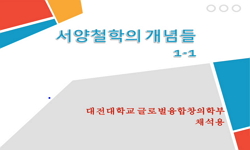The purpose of this study is to examine the concept of ‘expectability’ in criminal law by using the linguistic analysis tools. When we can expect everyone to act legally, we call it expectability of legal-act. The concept of expectability had been...
http://chineseinput.net/에서 pinyin(병음)방식으로 중국어를 변환할 수 있습니다.
변환된 중국어를 복사하여 사용하시면 됩니다.
- 中文 을 입력하시려면 zhongwen을 입력하시고 space를누르시면됩니다.
- 北京 을 입력하시려면 beijing을 입력하시고 space를 누르시면 됩니다.

기대가능성의 시니피앙 -기대가능성이론의 언어학적 접근- = The ‘Signifiant’ of Expectability in Criminal Law - A Linguistic Approach of Expectability Theory -
한글로보기https://www.riss.kr/link?id=A104500202
-
저자
송희식 (선문대학교)
- 발행기관
- 학술지명
- 권호사항
-
발행연도
2009
-
작성언어
Korean
-
주제어
책임 ; 비난가능성 ; 기대가능성 ; 개념 ; 기표 ; 기의 ; 가족유사성 ; 언표의 주체 ; culpability ; expectability ; blameworthiness ; concept ; siginfiant ; signifié ; family resemblance the subject of enunciation
-
등재정보
KCI등재
-
자료형태
학술저널
-
수록면
131-162(32쪽)
-
KCI 피인용횟수
1
- 제공처
-
0
상세조회 -
0
다운로드
부가정보
다국어 초록 (Multilingual Abstract)
linguistic analysis tools. When we can expect everyone to act legally, we call it expectability of
legal-act. The concept of expectability had been debated by many criminology researchers during the
last century in Germany. So, this study reviews the history of expectability concept in Germany, and
gropes for new approaches to the expectability theory by using linguistic and philosophical analysis.
A linguistic sign is a link between a concept and a sound pattern. The sound pattern is the hearer’s
psychological impression of a sound. The sound pattern of a linguistic sign is called its ‘signifiant’ in
French word, as Ferdinand de Saussure referred. The concept of a linguistic sign is called its ‘signifié’.
The link between signifiant and signifié is arbitrary. So there is no common signifié matching to a
signifiant in all its contexts. At most, there is only a family resemblance (Familienänlichkeiten) in
all signifié of one siginfiant.
According to the framework of our study using linguistic analysis tool, the old theory can be
interpreted by presuming that there is one essential signifié of jurisprudential siginfiant, however,
which is impossible. In the long history of the studies about the concept of expectability, there was
fallacy of conceptism in the belief that expectability had independent-seperated one signifié.
It is presumed that there is a unique distinctive feature in signifié of jurisprudential siginfiant. It is
assumed that jurisprudential signifié presupposes a case, such as an accident, an affair, an event, a
criminal case. So we call jurisprudential signifié as ‘case signifié’. The ‘case signifié’ has a semantic
structure and structural meaning of that case. Furthermore in terms of linguistic tools, ‘the subject of story’
is the subject in the jurisprudential sentences, ‘the subject of enunciation’ is the speaker of jurisprudential
sentences, and also there are behaviors, objects, results, situations and others in the case text.
In Korea, plentiful cases about expectability were accumulated in last half century. In terms of our study, The case signifié of expectability in Korea has structure-meaning, for example, Grenzsituation (extreme
situation), general expectation, Humana Fragilitas(humane fragility). The case signifié of expectability
of jurisprudential siginfiant has two sides. One side is expectation of the subject of enunciation. The
other side is the possibility of other action than the case (of the subject of story). The synthesis of
those two sides is expectability and blameworthiness of normative culpability theory.
In conclusion, the substantial difference between our study and the old theory lies in the meaning
of expectability referred as case signifié having structural semantics. The subject of expectation and
the subject of other possibile legal action are seperated from each other.
The purpose of this study is to examine the concept of ‘expectability’ in criminal law by using the
linguistic analysis tools. When we can expect everyone to act legally, we call it expectability of
legal-act. The concept of expectability had been debated by many criminology researchers during the
last century in Germany. So, this study reviews the history of expectability concept in Germany, and
gropes for new approaches to the expectability theory by using linguistic and philosophical analysis.
A linguistic sign is a link between a concept and a sound pattern. The sound pattern is the hearer’s
psychological impression of a sound. The sound pattern of a linguistic sign is called its ‘signifiant’ in
French word, as Ferdinand de Saussure referred. The concept of a linguistic sign is called its ‘signifié’.
The link between signifiant and signifié is arbitrary. So there is no common signifié matching to a
signifiant in all its contexts. At most, there is only a family resemblance (Familienänlichkeiten) in
all signifié of one siginfiant.
According to the framework of our study using linguistic analysis tool, the old theory can be
interpreted by presuming that there is one essential signifié of jurisprudential siginfiant, however,
which is impossible. In the long history of the studies about the concept of expectability, there was
fallacy of conceptism in the belief that expectability had independent-seperated one signifié.
It is presumed that there is a unique distinctive feature in signifié of jurisprudential siginfiant. It is
assumed that jurisprudential signifié presupposes a case, such as an accident, an affair, an event, a
criminal case. So we call jurisprudential signifié as ‘case signifié’. The ‘case signifié’ has a semantic
structure and structural meaning of that case. Furthermore in terms of linguistic tools, ‘the subject of story’
is the subject in the jurisprudential sentences, ‘the subject of enunciation’ is the speaker of jurisprudential
sentences, and also there are behaviors, objects, results, situations and others in the case text.
In Korea, plentiful cases about expectability were accumulated in last half century. In terms of our study, The case signifié of expectability in Korea has structure-meaning, for example, Grenzsituation (extreme
situation), general expectation, Humana Fragilitas(humane fragility). The case signifié of expectability
of jurisprudential siginfiant has two sides. One side is expectation of the subject of enunciation. The
other side is the possibility of other action than the case (of the subject of story). The synthesis of
those two sides is expectability and blameworthiness of normative culpability theory.
In conclusion, the substantial difference between our study and the old theory lies in the meaning
of expectability referred as case signifié having structural semantics. The subject of expectation and
the subject of other possibile legal action are seperated from each other.
참고문헌 (Reference)
1 한정환, "형사책임" 41 (41): 2000
2 배종대, "형법전 시행 반세기의 회고 - 기대가능성이론의 발전과 우리 형법 50년" 한국형사법학회 (18) : 67-96, 2002
3 윤용규, "형법의 기대가능성 이론에 관한 연구" 고려대학교 대학원 1992
4 이상윤, "형법상책임개념의 이론적 기초에 관한 고찰" 7 : 1999
5 조해근, "형법상의 기대가능성론에 관한 연구" 서울대학교 대학원 1995
6 이인숙, "형법상 책임원칙의 재조명" 고려대학교 대학원 2004
7 양화식, "형법상 책임과 의사의 자유" 1 (1): 1997
8 김성환, "형법상 책임개념에 과한 연구-록신,야콥스의 책임개념에 대한 비판적 고찰-" 동국대학교 대학원 1998
9 원 철, "포스트구조주의 비평에 나타난 언어와 주체성" 부산외국어대학교 대학원 2007
10 염정철, "출제문제를 지득한 응시자가 답안을 작성한 경우의 업무방해죄와 기대가능성" 한국사법행정학회,사법행정 1966
1 한정환, "형사책임" 41 (41): 2000
2 배종대, "형법전 시행 반세기의 회고 - 기대가능성이론의 발전과 우리 형법 50년" 한국형사법학회 (18) : 67-96, 2002
3 윤용규, "형법의 기대가능성 이론에 관한 연구" 고려대학교 대학원 1992
4 이상윤, "형법상책임개념의 이론적 기초에 관한 고찰" 7 : 1999
5 조해근, "형법상의 기대가능성론에 관한 연구" 서울대학교 대학원 1995
6 이인숙, "형법상 책임원칙의 재조명" 고려대학교 대학원 2004
7 양화식, "형법상 책임과 의사의 자유" 1 (1): 1997
8 김성환, "형법상 책임개념에 과한 연구-록신,야콥스의 책임개념에 대한 비판적 고찰-" 동국대학교 대학원 1998
9 원 철, "포스트구조주의 비평에 나타난 언어와 주체성" 부산외국어대학교 대학원 2007
10 염정철, "출제문제를 지득한 응시자가 답안을 작성한 경우의 업무방해죄와 기대가능성" 한국사법행정학회,사법행정 1966
11 심재우, "책임형법론" 홍문사 1995
12 Günther Jakobs, "책임형법론" 홍문사 1995
13 류기환, "책임성의 가치와 기능" 한국법학회 (29) : 181-200, 2008
14 하태훈, "위증죄의 주체" 고시연구 1997
15 이종선, "언술이론의 이해" 36 (36): 1995
16 윤영철, "양심적 병역거부에 대한 형사처벌의 형법적 문제점" 한국형사정책학회 16 (16): 93-120, 2004
17 Niklas Luhmann, "사회체계이론(Soziale Systeme)" 한길사 2007
18 윤종행, "부진정부작위범의 구성요건에 관한 연구" 연세대학교 대학원 2002
19 윤종행, "부작위범에 있어서 기대가능성의 체계적 지위" 한국형사법학회 (18) : 211-232, 2002
20 김성환, "독일 형법학상 예방적 책임개념에 관한 연구" 한독사회과학회 16 (16): 403-430, 2006
21 황석자, "담화행위의 주체성 연구" 대구 가톨릭대학교 연구논문집 1966
22 신경자, "담론을 형성하는 공간들" 4 : 1996
23 신치재, "기대가능성이론에 관한 연구" 중앙대학교 대학원 1988
24 이보령, "기대가능성의 이론" 고시연구 2004
25 류기환, "기대가능성론에 대한 연구" 한양대학교 대학원 1996
26 조상제, "국가형벌의 목적과 책임의 기능적 구성" (12) : 1999
27 Reinhard Frank, "Über den Aufbau des Schuldbegriffs"
28 Claus Roxin, "der Aufbau der Ⅴerbrechenslehre" Aufl 1994
29 Heinlich Henkel, "Zumutbarkeit und Unzumutbakeit als regulatives Prinzip"
30 Pitcher, "Wittgenstein의 철학" 서광사 239-, 1987
31 Ferdinand de Saussure, "Translated and Annotated by Roy Harris"
32 Berthold Freudenthal, "Schuld und Ⅴorwurf im geltenden Strafrecht" Tübingen 1922
33 Moritz Liepmann, "Schuld und Ⅴorwurf"
34 Claus Roxin, "Schuld und Ⅴerantwortlichkeit als strafrecjtische Systemkategorien"
35 Ludwig Wittgenstein, "Philosophische Untersuchungen, Ludwig Wittgenstein Werkausgabe" Aufl 1995
36 James Goldschmidt, "Normativer Schuldbegriff" Festgabe für Reinhard von Frank 1930
37 Franz von Liszt, "Lehrbuch des Deutschen Strafrechts" Aufl 1927
38 Friedrich Schaffstein, "Die Nichtzumutbarkeit als allgemeiner übergesetzlicher Schuldausschließungsgrund" Fakultät der Universität 1933
39 James Goldschmidt, "Der Notständ, ein Schuldproblem" Jahrg 1913
40 Reinhard Frank, "Das Strafgesetzbuch für das Deutsche Reich" Aufl 8-10, 1911
41 Arthur Kaufmann, "Das Schuldprinzip" Aufl 1976
42 Hans Welzel, "Das Neue Bild des Strafrechtssystems" Aufl 1957
동일학술지(권/호) 다른 논문
-
- 한양법학회
- 김래영(Kim, RaeYoung)
- 2009
- KCI등재
-
- 한양법학회
- 김태계(Kim, Taekye)
- 2009
- KCI등재
-
- 한양법학회
- 이순우(Lee, SunWoo)
- 2009
- KCI등재
-
직접적인 당사자간 어음채권과 원인채권의 소멸시효의 중단에 관한 연구
- 한양법학회
- 이훈종(Lee, HunJong)
- 2009
- KCI등재
분석정보
인용정보 인용지수 설명보기
학술지 이력
| 연월일 | 이력구분 | 이력상세 | 등재구분 |
|---|---|---|---|
| 2028 | 평가예정 | 재인증평가 신청대상 (재인증) | |
| 2022-01-01 | 평가 | 등재학술지 유지 (재인증) |  |
| 2019-01-01 | 평가 | 등재학술지 유지 (계속평가) |  |
| 2016-01-01 | 평가 | 등재학술지 유지 (계속평가) |  |
| 2012-01-01 | 평가 | 등재학술지 유지 (등재유지) |  |
| 2009-01-01 | 평가 | 등재학술지 선정 (등재후보2차) |  |
| 2008-01-01 | 평가 | 등재후보 1차 PASS (등재후보1차) |  |
| 2006-01-01 | 평가 | 등재후보학술지 선정 (신규평가) |  |
학술지 인용정보
| 기준연도 | WOS-KCI 통합IF(2년) | KCIF(2년) | KCIF(3년) |
|---|---|---|---|
| 2016 | 0.72 | 0.72 | 0.71 |
| KCIF(4년) | KCIF(5년) | 중심성지수(3년) | 즉시성지수 |
| 0.76 | 0.7 | 0.729 | 0.19 |




 KCI
KCI






